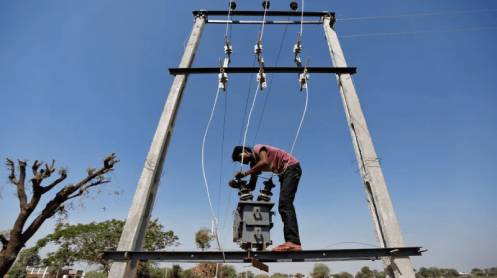ISLAMABAD: The Power Division has initiated efforts to address 23 critical issues in Pakistan’s generation, transmission, and distribution systems, sources revealed to Business Recorder. These proposed reforms have been presented to the Prime Minister and the Special Investment Facilitation Council (SIFC).
In generation, the focus areas include substituting imported fuel, optimizing fuel and capacity utilization, reducing the capacity payment burden, and privatization. Transmission improvements are targeting the North-South transmission capacity and governance enhancements.
A significant concern is the power sector’s circular debt, which exceeds Rs 2.4 trillion, with only Rs 100 billion considered recoverable. Despite commitments to the IMF and World Bank to contain this debt at Rs 2.310 trillion, an additional Rs 100 billion was added in FY 2023-24.
For the distribution system, key issues identified include high losses, inefficiency, and the need for tariff and tax reforms. Power Division plans to present an overview of these initiatives to the Senate Standing Committee on Power on August 6, 2024.
Reform strategies include adding 2,400-MW of solar generation, converting imported coal power plants, and leveraging auxiliary power for mining. The government aims to implement WACOG, integrate captive units into the National Grid, and introduce economic load shedding and regional incentive packages.
Debt restructuring is also on the agenda to alleviate the capacity payment burden. Privatization plans encompass wheeling and open competitive markets, along with privatizing Generation Companies (Gencos) such as Nandipur and Guddu. Transmission improvements focus on eliminating constraints and enhancing North-South Transmission Capacity.
Distribution system reforms include pre-privatization interventions, private sector participation in distribution companies, and resolving issues in AJK, FATA, and Balochistan tube-well sectors. Additionally, inefficient fan replacement is planned for energy efficiency and conservation.
Tariff and tax reforms are aimed at reducing industrial cross subsidies, providing subsidies to protected domestic consumers through social protection programs, and restructuring tariffs and taxes.
Minister for Power, Awais Leghari, has requested Chairman Senate Standing Committee, Mohsin Aziz, to allow a presentation on these power sector reforms. The government seeks to activate the Competitive Trading Bilateral Contracts Market (CTBCM), with NEPRA set to hold a public hearing on the matter.
Story by Mushtaq Ghumman







